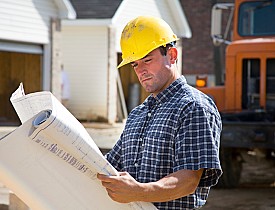What to Expect from an Inspector
 Some home sellers dread inspections as a mysterious process that could kill a potential sale. Instead, sellers can use inspections to their advantage and prevent red flags. Moreover, inspections cover some of the same basic issues as appraisals, so a positive inspection can be a good predictor of a solid appraisal value.
Some home sellers dread inspections as a mysterious process that could kill a potential sale. Instead, sellers can use inspections to their advantage and prevent red flags. Moreover, inspections cover some of the same basic issues as appraisals, so a positive inspection can be a good predictor of a solid appraisal value.
Inspectors make a thorough visual survey of safety hazards or issues that would can decrease property values. They will not necessarily estimate the life expectancy of items. For liability reasons, they rarely test or inspect appliances. The day after an inspection, the refrigerator could break or a dishonest homeowner could switch out the appliance.
The International Association of Certified Home Inspectors trains members to review the roof, attic and insulation; heating, cooling, plumbing and electrical systems; windows, doors and interior components; the foundation, basement and structure; and exterior.
Here are simple and inexpensive ways to prevent a failing grade on some of these tests. Most of these basic improvements will help make a house more livable, but they are often delayed or ignored.
Roof and Attic
Inspectors closely consider drainage and leaks from the roof and around the house, including gutters and downspouts. Be sure to fasten any loose gutters and attach downspout extenders to keep water flowing away from the house. Also check the seals around any vents, skylights, or other roof openings. They may have deteriorated over time, and you probably don't check them every month.
In the attic, an inspector is mainly looking for insulation and ventilation. Blow in some insulation and put in the gable vent you never got around to installing. The inspector will note both items, and energy-conscious buyers like the added benefits.
Basement and Foundation
Again, additional insulation under the house will boost resale value. Also look for gaps in the framing. When I bought my current house, the inspector saw a cut beam below the bathtub drain. The previous owner probably didn't know that a plumber cut the board while remodeling the bathroom. Had the seller checked the crawlspace, he could have easily solved the problem before the inspection.
Heating and Cooling
On a limited budget, a furnace tune-up may be a better value than a replacement. Again, the inspector is more likely to critique the one-year-old filter than praise the one-year-old furnace. The inspector will also probably check vents for proper airflow, so spend a few minutes sealing any leaky ducts.
Plumbing
A clogged drain may raise a red flag, causing buyers to worry about a serious plumbing problem. Meanwhile, a pot of boiling water might clear the clog.
On the other hand, don't bother installing a fancy water filtration system just to impress the inspector. It will probably go unnoticed.
Electric
You certainly should regularly replace smoke detector batteries, but be sure to check the detectors again before an inspection. Also, replace any bathroom and , kitchen and outdoor outlets with ground fault current interruptor (GFCI) outlets if you haven't already done so. These safety receptacles are typically required for any outlet near water.
Getting into the mind of the inspector before his examination will pay off with a cleaner report and a potentially higher resale value.
Looking for a Pro? Call us (866) 441-6648

Remodeling Average Costs
Remodeling Contractors Experiences

Drywall Repair Drama: And The Leaks Went On And On

A Tile Grouting Job Well Done!!



